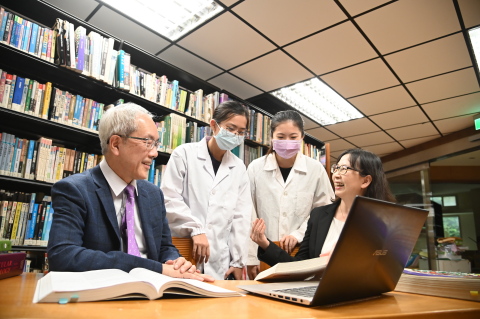Ushering in a New Era of Medical Education at NTHU
Ushering in a New Era of Medical Education at NTHU
HSINCHU, Taiwan--(BUSINESS WIRE)--National Tsing Hua University’s plan to establish a post-baccalaureate program in medicine has been approved at a recent cross-ministerial meeting held at the Ministry of Education. The school’s recruitment and admission application process will begin by the end of 2021, and the first class of government-sponsored students will be enrolled in September 2022.
NTHU President Hocheng Hong said that NTHU already has a strong foundation in cross-disciplinary research in medical science, including big data analysis, application of artificial intelligence (AI), bioengineering, material science, and nuclear medicine, by which the school is well-positioned to train physicians specializing in more than one expertise. As such, this new program represents a quantum jump in medical education in Taiwan.
President Hocheng said that NTHU already has sufficient number of faculty members, funding, and infrastructure for the new program. In addition to the existing 180 faculty members teaching related courses, the program has recently recruited an additional 71 full-time faculty members, and 87 physician scientists from leading medical centers throughout Taiwan as adjunct faculty members. Moreover, the provisional office of this program has raised NT$2 billion for medical education. An ongoing plan for establishing a state-of-the-art teaching hospital and medical complex in the Taoyuan Aerotropolis next to the Taoyuan International Airport is currently being reviewed by the Ministry of Health and Welfare.
The post-baccalaureate program in medicine is a four-year program, open for graduates from all disciplines. The government-sponsored students will be required to serve in a public healthcare facility for six years. They will have an opportunity to undertake an additional two years of advanced training in a medical center.
NTHU will draw on its extensive experience in student recruitment to admit only those applicants who meet the stringent admission qualifications, the innovative student selection process could open a new path for medical education in Taiwan.
The post-baccalaureate program in medicine will be part of the future College of Life Sciences and Medicine (currently the College of Life Science). Dean of the College of Life Science, Kao Ruey-Ho, former Superintendent of Tzu Chi Medical Center, said that applicants who apply directly to NTHU will be evaluated based on test scores, transcripts, and interviews, to select students who have demonstrated academic excellence, as well as a passion for medicine and public welfare.
Government-sponsored students in the program will take several courses designed to prepare them for practicing in a rural area, such as Community Medicine Practicum, and make good use of AI diagnosis and telemedicine technology; they will also attend seminars on altruism and dedication to public health, which will be taught by laureates of the Medical Contribution Award.
Contacts
Holly Hsueh
NTHU
(886)3-5162006
hoyu@mx.nthu.edu.tw

